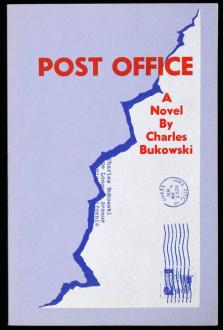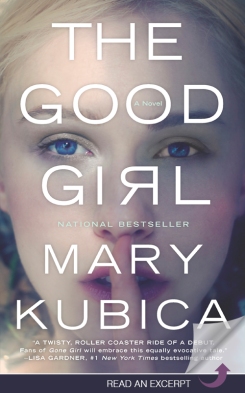MAY 2019 – AUGUST 30th, 2019
The Post Office – Charles Bukowski; Autobiographical Novel
Women – Charles Bukowski; Autobiographical Novel
The Good Girl – Mary Kubica; Psychological Thriller
The Green Mile – Stephen King; Southern Gothic
The Revenant – Michael Punke; Historical Fiction
I started college fresh out of high school in 2014. Until about May of 2019, I decided to stop skimming through assigned readings and ditch television by making the transition into text. I sat down to read about ten to fifteen pages of random classic novels. None of them ‘grabbed me.’ Then, at wits end and discouraged to find joy in reading, I decided to grab a random book off the shelf and sit down to read it. That book would change me forever.
The Post Office – Charles Bukowski

The Post Office was the first book that I have read cover to cover since I was in third grade. I have never been much of a reader prior. When I picked up this book, I was done in about three days. I couldn’t get the book out of my hand; almost bound to my hand. I dreaded going to class because I wanted to read the book instead of sitting through lectures.
What drew me into the Post Office, was Bukowski’s style. I love his ability to say profound sentences in such a simple way that gracefully weave through his tales of working at the post office as he slides into skid row. His rugged and gritty way of depicting life in the 1970s was incredible; it blew my mind into a thousand pieces. I don’t believe Bukowski is my favorite author, but he possesses a unique style that personally I feel is unmatched. The guy writes like if Hemingway was lying in the gutter, homeless, and barely clinging onto the last few words of his life. It was a fantastic book that was mimetic in the way it shines a light on the difficulties writer’s face in establishing themselves and following they’re ambitious to be a success in a harsh occupation.
Women – Charles Bukowski

Women are included in the Bukowski, “Chinaski” chronicles. The book improved my ability to identify the importance of detail. Bukowski looks at the detail as being a crucial aspect of his writing but often has been a critic of detail being over-used. Bukowski uses sharp features that are very brief and possess depth behind the descriptions. For example, a writer might say: “He walked up and down the sidewalk, that was bitter, and did not possess light.” Where Bukowski would say something like: “He walked down through the dark ghetto, alone, and half-dead.” Bukowski loves to use simplicity with depth, such as “half-dead.”
Women was helpful because not only was it a follow up to The Post Office, but because it puts Bukowski’s time as a writer on full display. It shows the life of writers, their creative process, public appearances, and the truth of bad writers. Bukowski’s hatred of “bad-writing” really made me appreciate his work and allow myself to be more critical of books I read.
The Good Girl – Mary Kubica

The Good Girl is a psychological thriller that loosely has a very similar plot to the film Gone Girl. A staged kidnapping, with twists and turns that make psych major’s mouths water. The book is very jumpy; meaning that it bounces around between characters and scenes. Overall the book is excellent. The book as a writer gave me a lot of ideas for potential writing a book that has a “Tarantino” type scene sequence, or story delivery. As a reader, it allowed me to be very patient. Some could skip through the book for the good stuff, because of how helter-skelter the book was set up. I decided to let it play out and patiently read through it, taking a more extended and more careful approach to analyzing the elements of the story.
The Green Mile – Stephen King

The Green Mile is one of King’s best-selling novels and later adapted into a critically acclaimed movie that won multiple academy awards. King’s story of a black man with ‘god-like’ healing powers on death-row, is regarded as one of his most influential works of fiction. Reading the book was very powerful, but what stuck out to me was King’s use of backstory. King sways in and out of the general plot and cleverly weaves backstory to build up the novel. For writing, the book brought to light the importance of character development. By the end of the book, I was blown away by the character arc of Paul Edgecombe.
The Revenant: A Novel of Revenge – Michael Punke

The Revenant: A Novel of Revenge is a work of historical fiction was loosely based on the true story of fur-trapper Hugh Glass. The work is very accurate on the real story of Hugh Glass and adds very little of added detail. Some historians often praise the accuracy of the book at certain moments. As a history major, I loved reading the book because it opened my mind to a genre I didn’t know existed. By being exposed to historical fiction, I am intrigued at further looking into more books that are in the same realm as this one. Maybe one day I could write one of my own someday down the road. The ability to blend fact and fiction is exciting and seems fun to create to me personally. Who knows, anything is possible.